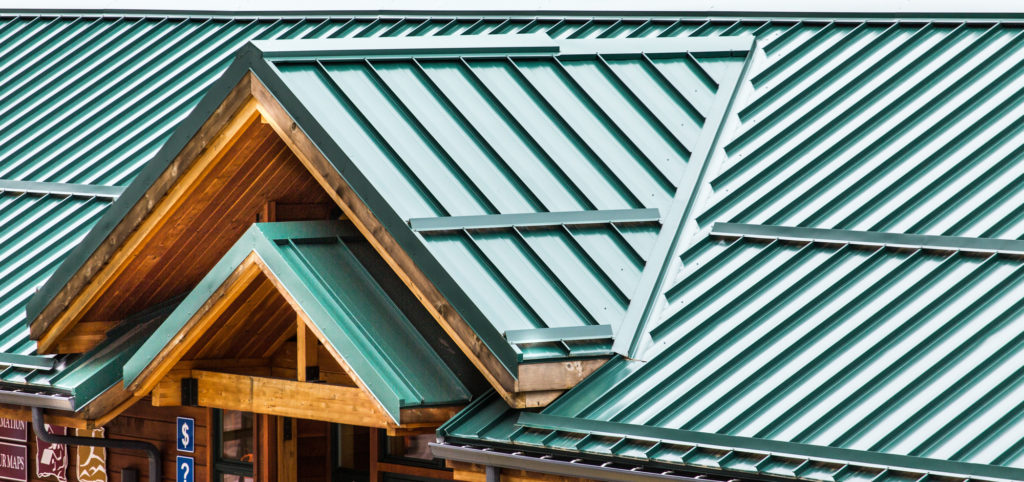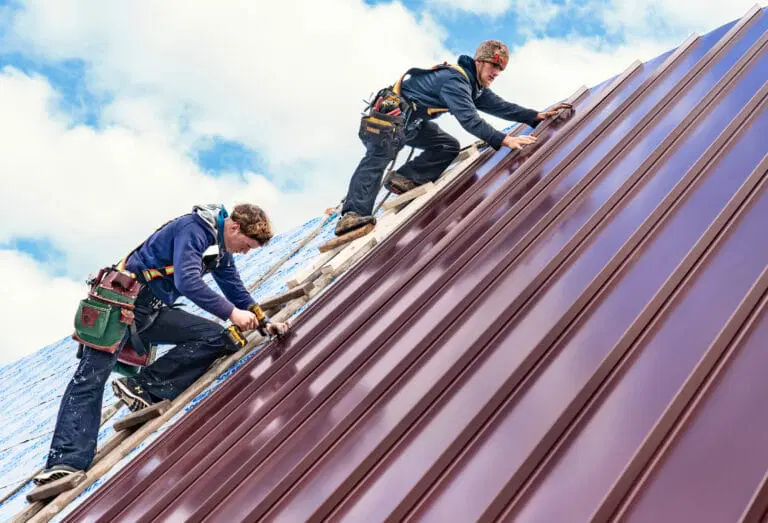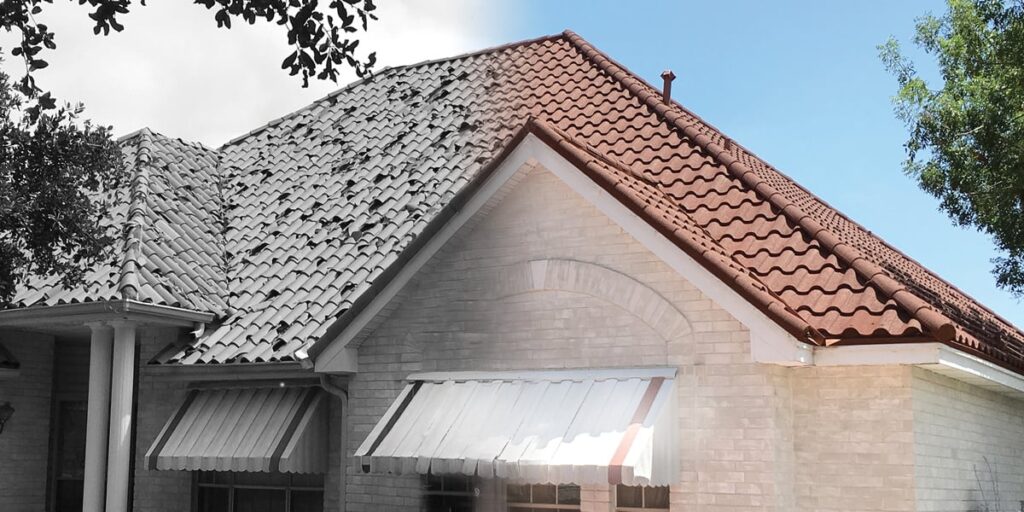Even though you might not have considered metal roofs when you first realized you needed to replace your roof, they can be a practical and cost-effective alternative. Often, metal roofs offer more benefits than drawbacks. Some of their most notable characteristics are listed below.
Does Metal Roofing Have a Higher Durability?
The main difference between metal and shingle roofs is their lifespan. A typical asphalt roof with three-tab shingles may last 15 to 20 years, while architectural asphalt shingles typically have a maximum lifespan of 30 to 50 years. Regardless of the type of shingles you choose, replacing an asphalt roof is a challenging, noisy, and expensive process.
A metal roof will eventually need fewer replacements, even though installation can be noisy and inconvenient. Given that metal roofs can endure for 40 to 80 years or longer, they are a prudent investment.

Are Metal Roofs Durable?
Metal roofing is made from strong metals like copper, zinc, aluminum, steel, and tin. They are more durable than asphalt shingles, which is why they last longer.
Metal roofing can withstand harsh weather conditions, such as heavy snowfall, scorching summer temperatures, and gusts of up to 140 mph. They are sturdy, especially the steel ones with a higher hardness rating. Most metal roofs with a Class 4 impact resistance rating can withstand hail up to two inches in diameter.
Are Metal Roofs a Better Choice for Curb Appeal?
Metal roofing has come a long way since its predecessors were constructed of tin-plated iron. Roofers did not always consider curb appeal, even though metal roofs are now much more aesthetically pleasing. A metal roof system also maintains its visual appeal well. Because it sustains so little damage, your roof will continue to look brand new for many years to come.
Metal roofing is available in a wide variety of colors and styles. If conventional metal shingles aren’t your thing, you have a lot of other options, including panel, tile, ribbed metal, and shake-inspired roofing.
Are Metal Roofs Eco-Friendly?
Every year, more than 12 billion square feet of asphalt shingles wind up in landfills, producing a significant amount of garbage. An environmentally beneficial alternative is a metal roof. By installing them directly over your current roof roofer can avoid the debris that comes with a conventional roof replacement. Additionally, metal roofs are 100% recyclable in the event of replacement and are composed of 35–95% recycled materials.
Do Metal Roofs Use Less Energy?
If you want to reduce your energy costs, metal roofs are a smart choice. Conventional shingles retain solar heat, increasing your home’s cooling requirements by as much as 15%. Because metal roofs deflect the scorching sun, your home’s cooling expenses will be lower.
Most roofing companies insulate under metal roofs, which reduces heating expenses and keeps your home warmer in the winter. Metal roofs increase your energy savings by about 10% to 25%. Solar panels can further increase the energy efficiency of metal rooftops.

Are Metal Roofs Safe?
It’s a common misconception that bad weather makes metal roof issues more likely. Metal roofs are just as likely as regular asphalt roofs to be struck by lightning during a thunderstorm. With a Class A fire rating, most metal roofs are also impervious to the spread of surface flames. These roofs are as safe as asphalt shingles, even if you live in a region that frequently experiences wildfires.
What Are the Cons of Metal Roofs?
Some homeowners, especially those with limited funds, may be put off by a few disadvantages of metal roofing.
Are Metal Roofs Expensive?
Metal roofs are more expensive than shingles. Most new roof installations cost between $5,582 and $13,022, with an average cost of about $9,300. A traditional asphalt shingle roof typically costs $8,800. The size of the roof type you install and the roof’s pitch are two of the many variables that will affect the cost. If expensive materials like slate, clay tile, or artificial wood shakes are used, the final cost could be more than $30,000.
Although copper or other premium metals can cost up to $40,000, a metal roof typically costs between $5,670 and $17,350. A metal roof may be less expensive in the long run, but the initial costs can be intimidating.

Will Metal Roofs Get Dented?
Metal roofs can sustain damage even though they are long-lasting. Steel roofs are sturdy and rarely have indentations, but copper and aluminum roofs are prone to issues. Hailstorms and falling tree branches can also cause paint finishes to chip and fade, which increases the chance of dents. While you’re considering your options, look at warranties to see what each roof company covers.
Are Metal Roofs Noisy?
You will most likely hear noises from your metal roof during a storm. Even though some people find the sound of rain on a metal roof to be calming, this is something to consider, particularly if you’re sensitive to certain noises. A competent roofer would know how to reduce noise by installing the proper underlayment or insulation.
Chack Also:https:https://eromecoms.com/wp-admin/post.php?post=626&action=edit
Conclusion
Metal roofing offers an impressive combination of durability, energy efficiency, and aesthetic appeal, making it a smart long-term investment for homeowners. With a lifespan of up to 80 years, excellent resistance to harsh weather, and eco-friendly materials, metal roofs outperform traditional asphalt shingles in both performance and sustainability. They also provide design versatility, allowing homeowners to choose from a variety of colors and styles to complement any home exterior.
While the upfront cost of metal roofing may be higher, its longevity, low maintenance needs, and potential energy savings often make it more cost-effective over time. With proper installation and insulation, metal roofs can be quiet, safe, and visually appealing, providing both protection and peace of mind. For homeowners seeking a roofing solution that balances strength, beauty, and environmental responsibility, metal roofing stands out as a superior choice.
FAQs

Musa Khan is a tech and business writer with 5+ years of experience covering the latest in technology, digital trends, and industry insights. He shares clear, helpful information to make complex topics easy for readers.
